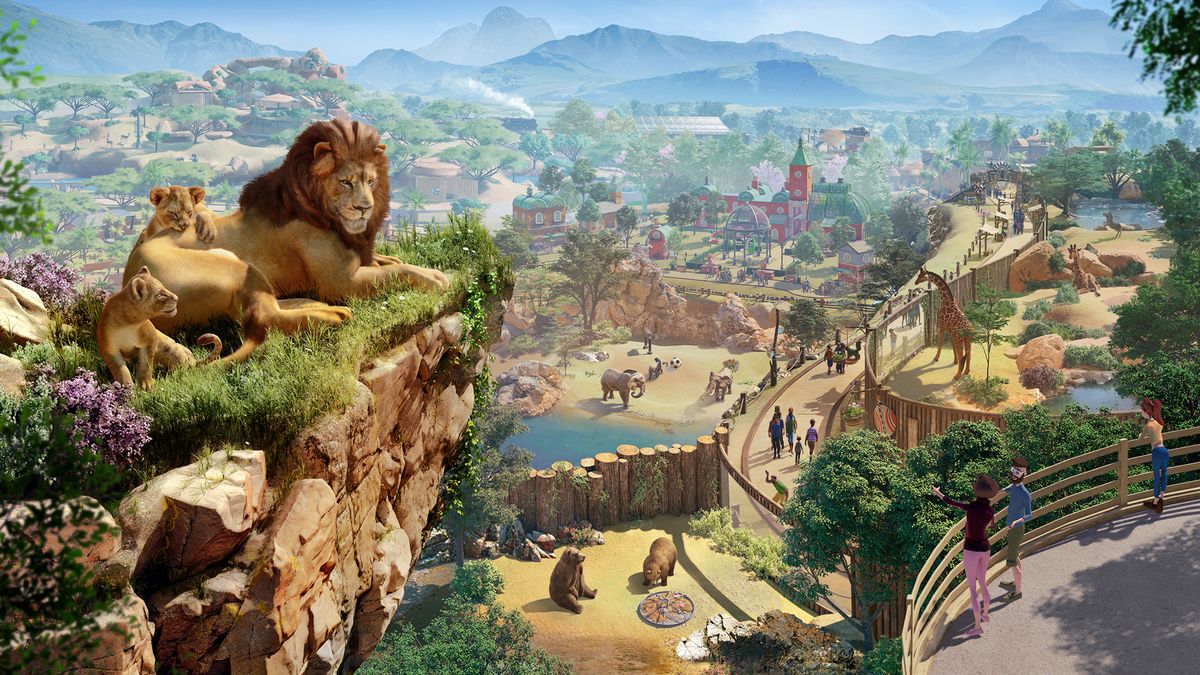12DOVE Verdict
Planet Zoo is a complex, deep simulation game with too much to give, if you can get past the minimalist tutorials.
Pros
- +
Gloriously realistic animals
- +
Rewarding gameplay loop
- +
Educational fun
Cons
- -
Needs more tutorials
- -
Can be ridiculously frustrating
Why you can trust 12DOVE
I've spent more time than I'd like to admit looking at foliage. Does this Alpine Sea Holly really belong in my Grizzly Bear enclosure? Will it bring them joy? Am I thinking too much about plants? You might think I've lost my mind or spent too much time reading Marie Kondo's book, but actually, I've spent a lot of time understanding what bears really want through the medium of Planet Zoo.
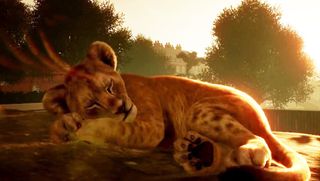
Release date: November 5, 2019
Platform(s): PC
Developer / Publisher: Frontier Developments
Not just specifically bears either. My knowledge now ranges from Aardvarks to Western Lowland Gorillas, and from Amazonian Giant Centipedes to Yellow Anacondas. Planet Zoo shines in its presentation of animals, thinks deeply about their welfare, and constantly reminds you that conservation and education are as important as your bottom line. You'll learn about each of the species as you play, and flicking through the Zoopedia makes you appreciate the various wants of your creatures and the reasoning behind them all. Before long, you'll find you've absorbed more fun facts and tidbits than you prepared for, just by trying to make your animals happy. It makes the entire experience a lot more immersive, pushing you to dive into the layers of sub-menus to discover how to get more out of Planet Zoo.
Everything the light touches
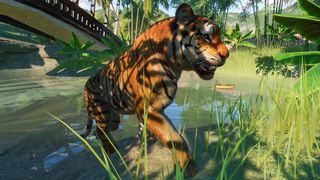
And this is a game that keeps on giving. It takes the depth of simulation and creative freedom found in Planet Coaster, pairs it with the animal welfare elements of Jurassic World Evolution, and melds them into the ultimate zoo-building title. Even creating the perfect habitats for your creatures is an intense process, with multi-level happiness requirements that will constantly shift and change according to what's happening in their enclosure or exhibit at any time.
Your creatures will need the right food and drink bowls, the right mix of terrain, require plants and trees plucked straight from its natural habitat, appropriate space to roam, or swim, or climb, adequate hard shelter, and the right amount of friends to frolic with in order to be even vaguely happy. When you've got everything right, watching your creatures just existing is the best thing – like a wonderful wildlife screensaver that also happens to involve watching animals poop a lot. Plus, the happier your creatures are the more likely they are to breed. And yes, every single baby critter is utterly adorable – I've checked.
To begin with, your options are a little basic and you might not have everything you need to satisfy your new residents straight away. Instead, you'll have to spend time getting your vets and mechanics to uncover more information about each species or zoo sub-section, eventually unlocking better gear, increasing the food quality, buildings, fences and more, which you'll then be able to offer to your creatures, guests, and staff. The caveat is, however, you can't start researching any of these items until you've already adopted an animal of that species and placed it in your zoo, meaning it can become a balancing act between the speed at which the research can happen versus how quickly your unhappy animals can start acting out.
Remember who you are
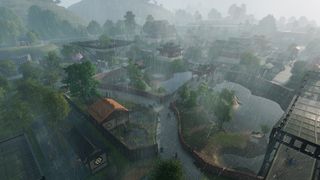
It's a complicated process, and Planet Zoo has a steep learning curve as a result, but the more you play, the easier it becomes to understand – to a point, at least. There are four game modes on offer, which, when combined, create more content that you might ever be able to play. The career mode takes you on a worldwide tour across 12 levels, putting you at the heart of a dramatic story as it asks you to complete a variety of different objectives to proceed. Challenge mode takes those Career levels and adds a never-ending string of challenges (as the name implies), and Sandbox mode lets you build without limits, while Franchise mode lets you create a series of connected zoos that span the globe.
The aim with career mode is to introduce you to all the core elements of Planet Zoo's gameplay before being let loose on the more creative, freeform modes, moving you from tutorial to tutorial in a way that the team's previous game – Planet Coaster – struggled to do. It certainly does a better job than its forebearer at introducing the basics, but when, in the fourth chapter of the career mode it throws you onto a blank canvas plot of earth and tells you to build a zoo from scratch and make money, it feels like a step too far, too soon.
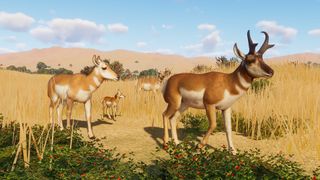
The early levels do well to teach you about how to build habitats, and how to keep your animals happy and healthy, but don't do much to tell you about how to make a financially stable business, which as you can imagine is quite the task. There are heatmaps to make things a little easier, but it's a complicated feat that keeps you on your toes at the best of times, and ridiculously infuriated at its worst. Planet Zoo is game that – despite the effort to explain more about its systems through natural play – would benefit from having way more tutorials, especially when it comes to tips and tricks to keep your zoo's finances in the black. Coming into Chapter 4 in Career Mode, or attempting to dive into any of the other modes, with no guidance whatsoever feels like Frontier has taken the training wheels off and thrown them into the sea, which is a bit of a system shock after the first three level's helpful step-by-step tutorials.
Thankfully, when it comes to the actual building, the community already has your back. There is a raft of beautiful habitat, exhibit and other designs that the more talented Planet Zoo aficionados have put together that you can literally just drop into your zoo as prefab-additions. If you don't want to be that creative, you can let someone else do it for you. I had a lot of fun building monkey gyms by hand though, trying to mimic the beautiful levels found throughout the career mode, even if the rotation and movement tools can be a little fiddly when combined with camera angle oddities.
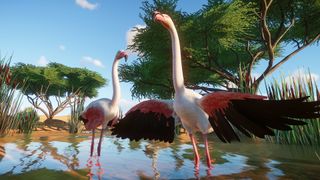
It's not the easiest game to understand by any stretch. The road to review was riddled with bugs and quirks, which seem to have been alleviated with a Day One patch, but Planet Zoo can be impenetrable, particularly for those not used to a game in this genre offering quite as much depth as this. But this is a game that will give back as much as you put in. If you're prepared to spend a good portion of your first few hours with Planet Zoo confused and bemused, to eventually be creating your dream zoo and sharing it with the world, then this could be one of the most rewarding – and adorable – games you'll experience this year.

Sam Loveridge is the Brand Director and former Global Editor-in-Chief of GamesRadar. She joined the team in August 2017. Sam came to GamesRadar after working at TrustedReviews, Digital Spy, and Fandom, following the completion of an MA in Journalism. In her time, she's also had appearances on The Guardian, BBC, and more. Her experience has seen her cover console and PC games, along with gaming hardware, for a decade, and for GamesRadar, she's in charge of the site's overall direction, managing the team, and making sure it's the best it can be. Her gaming passions lie with weird simulation games, big open-world RPGs, and beautifully crafted indies. She plays across all platforms, and specializes in titles like Pokemon, Assassin's Creed, The Sims, and more. Basically, she loves all games that aren't sports or fighting titles! In her spare time, Sam likes to live like Stardew Valley by cooking and baking, growing vegetables, and enjoying life in the countryside.

Metaphor: ReFantazio wanted to fix the JRPG grinding problem, but Atlus went too far at one point and accidentally broke the whole combat system
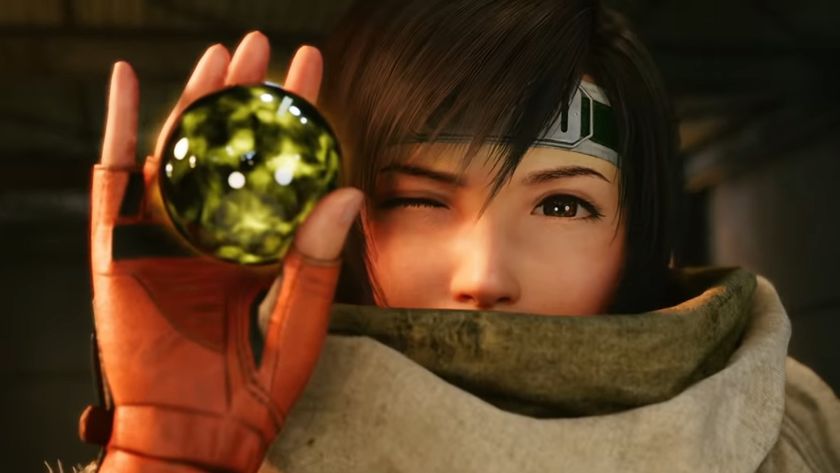
Final Fantasy 7 Remake and Rebirth battle director says combining everything he learned on Monster Hunter: World with Square Enix's technology and unique skills created a "chemical reaction"
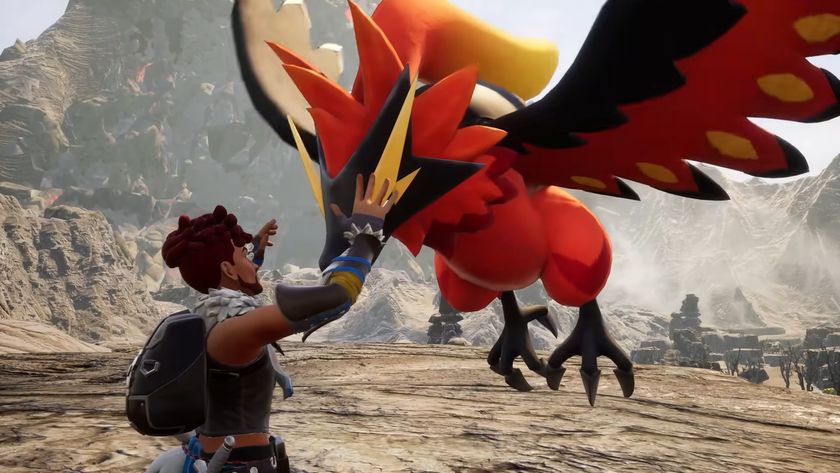
"Minutes after Palworld released," Pocketpair was already getting game pitches from "some really big names" before it even set up its own publisher: "No one has money at the moment"
